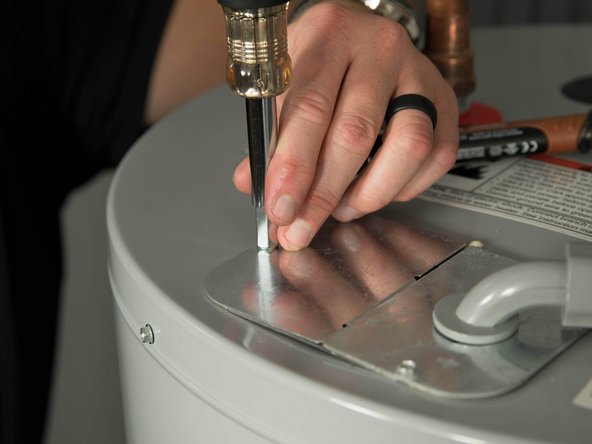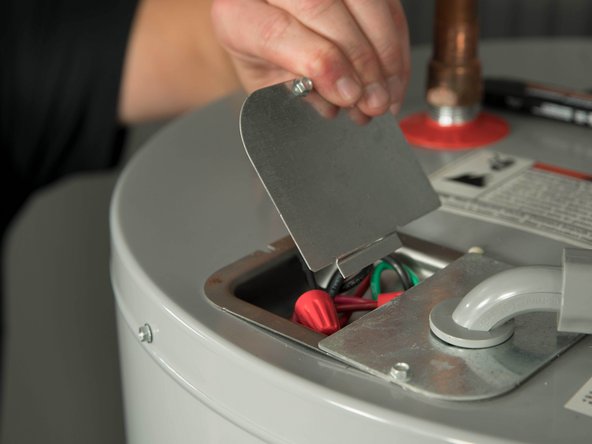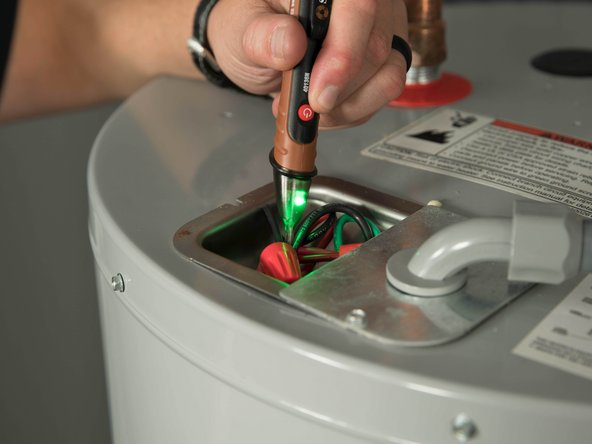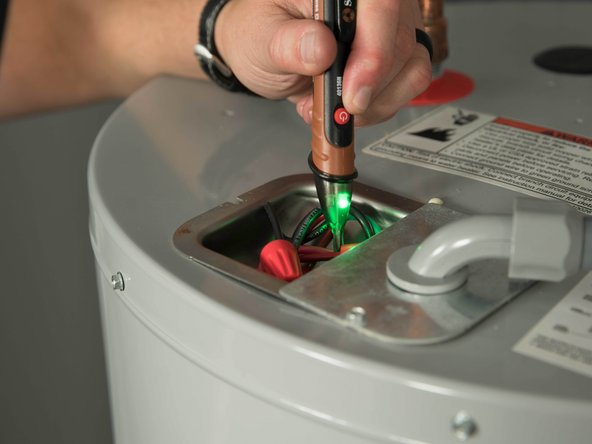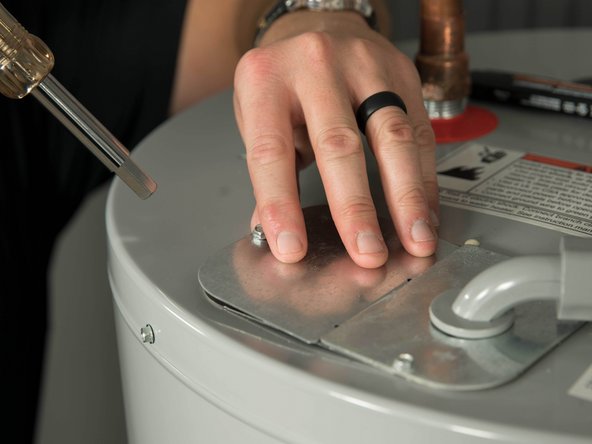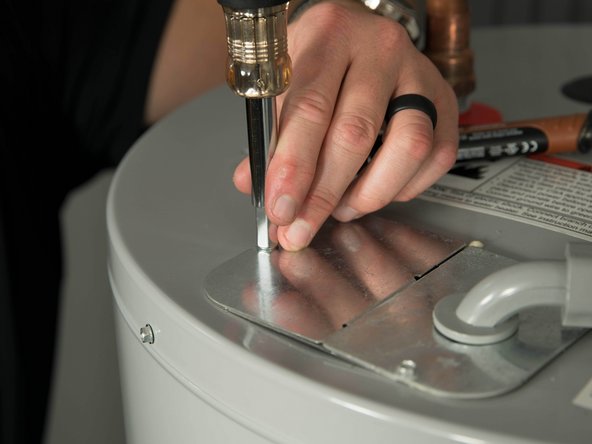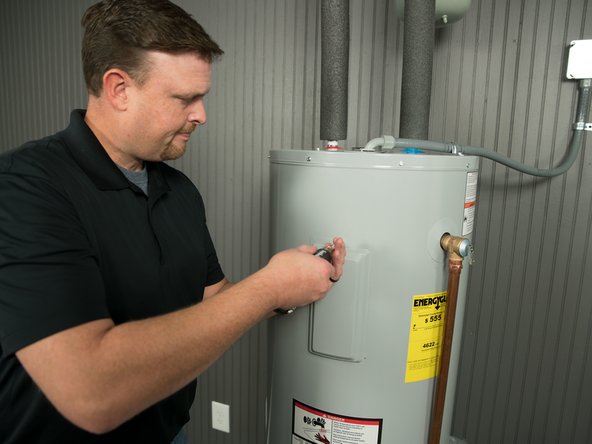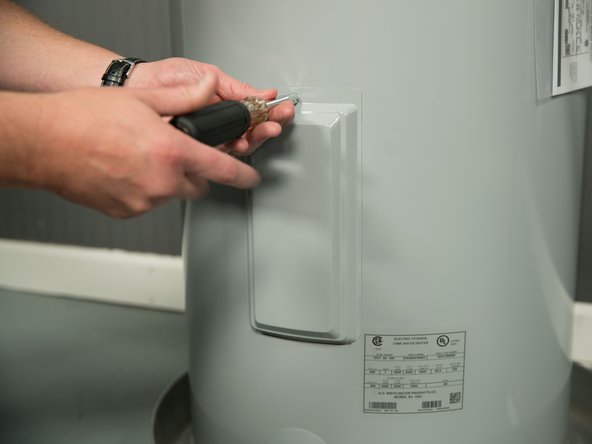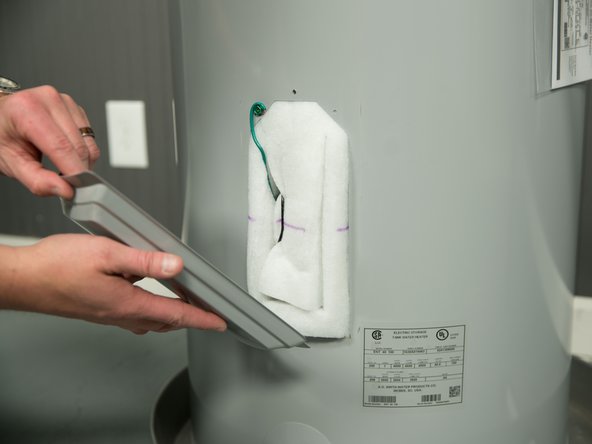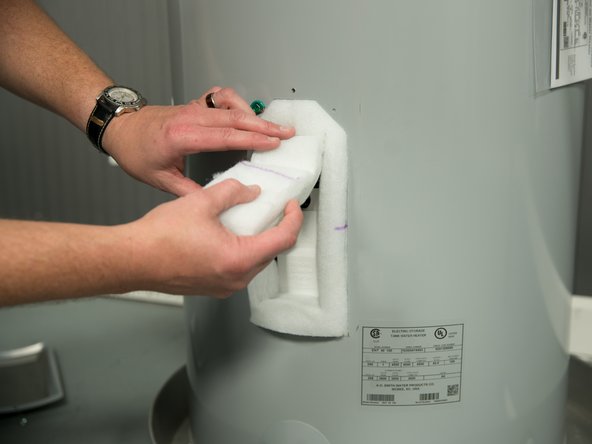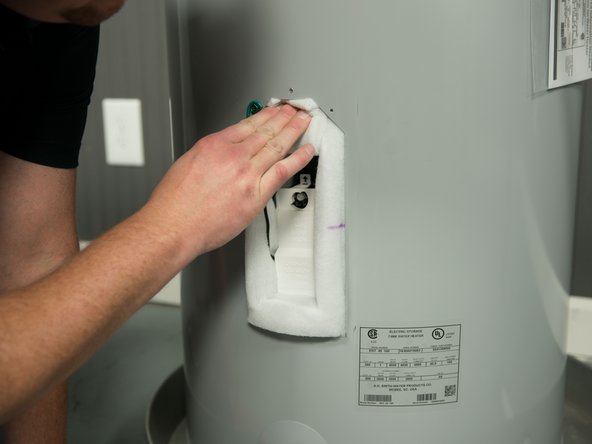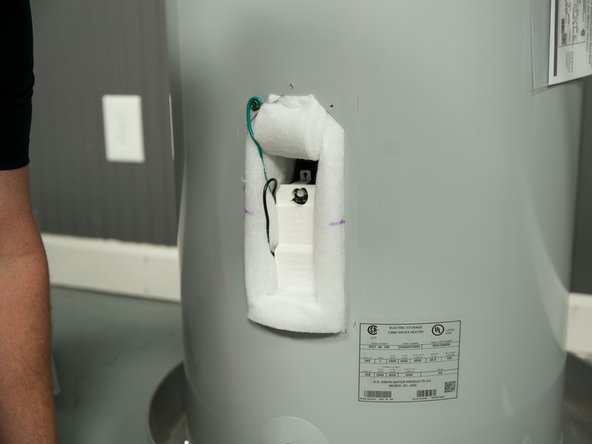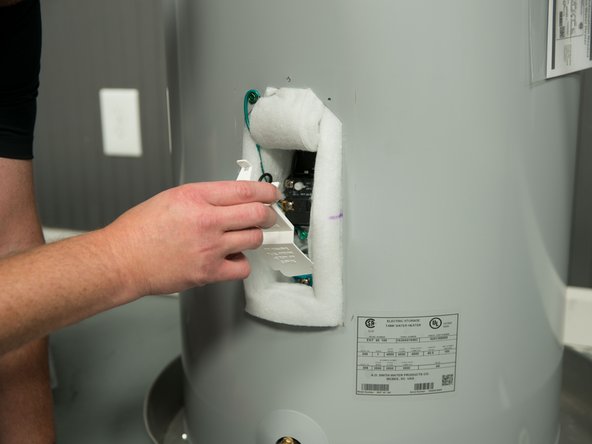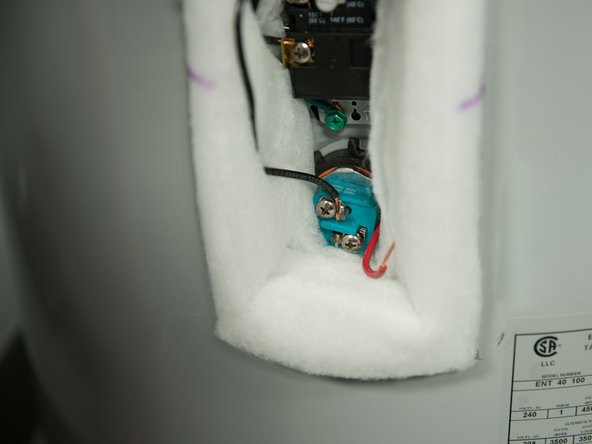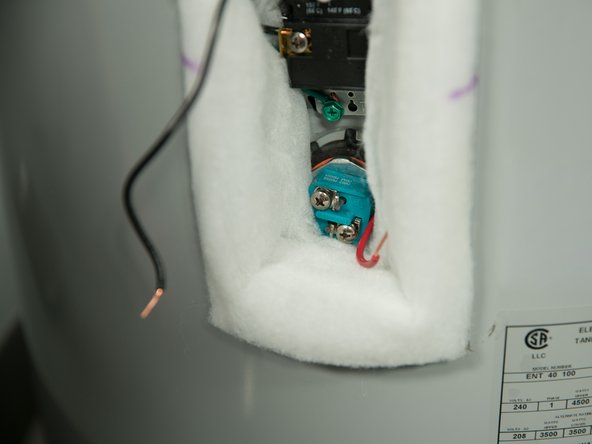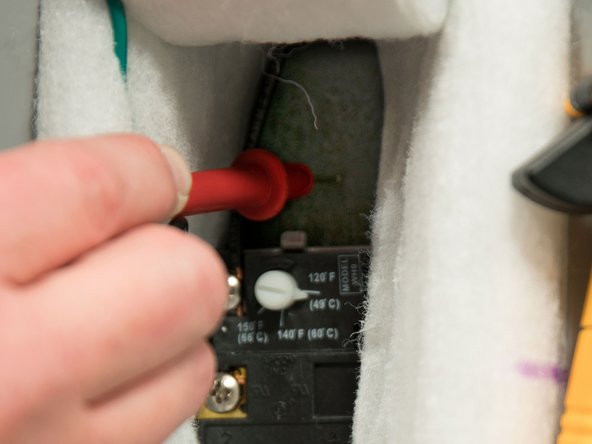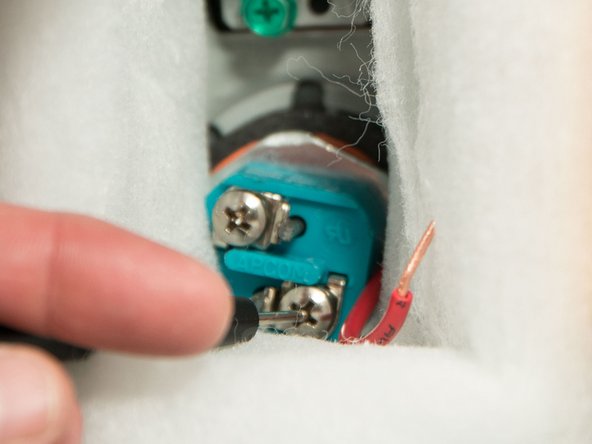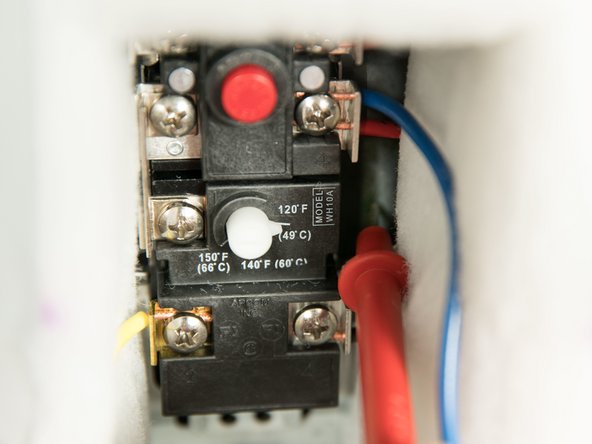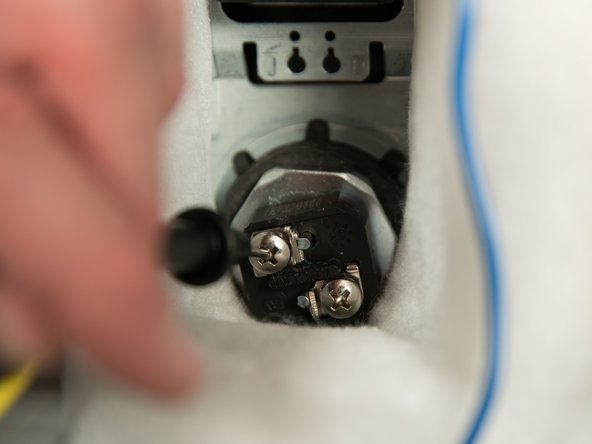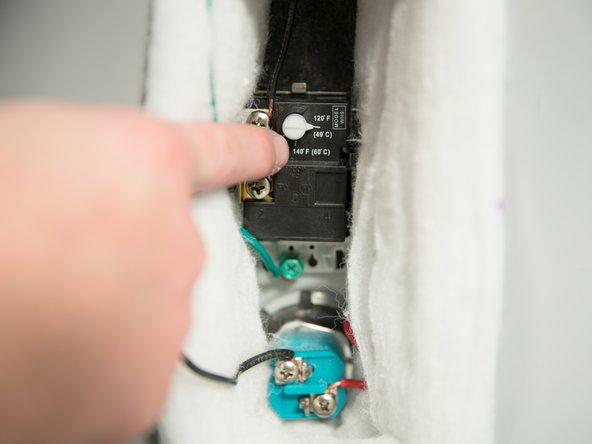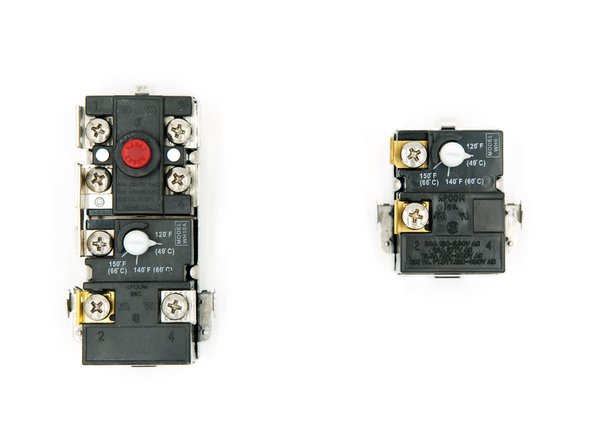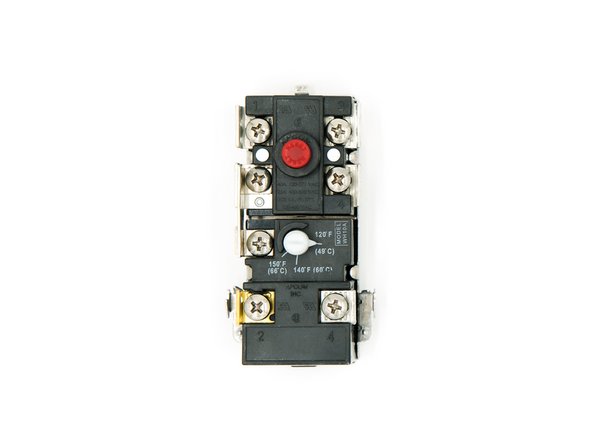Introduction
Your water heater is equipped with an Energy Cutoff (ECO). The ECO is a safety device designed to cut power to the unit if the water becomes excessively hot. If the ECO has tripped, this is likely an indication of a non-functioning thermostat or a grounded heating element.
WARNING! A non-functioning thermostat or grounded heating element can cause the water heater to produce extremely hot water causing severe injury or death.
The information on this web site is supplemental to the printed instructions that came with your water heater. To reduce the risk of property damage, serious injury or death, read and follow all labels on the water heater and the safety instructions in the printed owner's manual.
Parts
-
-
Multimeter
-
Non-contact circuit tester
-
Screwdriver
-
New thermostats
-
-
-
Locate the water heater's circuit breaker and turn it OFF (or remove the circuit's fuses).
-
WARNING! Before working on the water heater, use a non-contact circuit tester or volt meter to make sure power is off. Working on an energized appliance can cause electrical burns, electrocution or death.
-
-
-
Open the electrical junction box on top of the water heater.
-
Your access panel may look different and may use a different type of screw.
-
-
-
Using a non-contact circuit tester, check the power wires to make certain the power is off.
-
WARNING! Working on an energized circuit can result in severe injury or death from electrical shock. Check wires with a volt meter or circuit tester to make sure power is off.
-
-
-
Replace the junction box cover.
-
WARNING! Be sure all covers are secured to reduce the risk of fire and electric shock.
-
-
-
Remove the upper and lower heating element covers.
-
-
-
Move the insulation out of the way (tuck the insulation under the water heater's jacket).
-
WARNING! Working on an energized circuit can result in severe injury or death from electrical shock. Check wires with a volt meter or circuit tester to make sure power is off.
-
-
-
Remove the plastic protectors.
-
-
-
Remove both wires from the lower heating element.
-
The lower heating element operates more frequently and will likely fail before the upper heating element does. However, a short in either heating element could cause the ECO to trip.
-
-
-
Set your multi-meter to the continuity (or resistance) setting.
-
-
-
Check for a short between each heating element screw and the inner steel tank.
-
-
-
If a short is found between either screw and the inner steel tank, the element is grounded and must be replaced. See Checking/Replacing a Lower Heating Element.
-
If the lower heating element is not shorted, perform this test on the upper heating element.
-
If the upper element is shorted, the upper element needs to be replaced. See Checking/Replacing an Upper Heating Element
-
-
-
If neither element is shorted, a stuck thermostat is likely the cause of the tripped ECO.
-
Try replacing the lower thermostat. See Replacing a Lower Thermostat for instructions.
-
Thermostats are hard to troubleshoot, but they are also inexpensive. The lower thermostat does most of the work, so if a stuck thermostat is causing the ECO to trip, it is likely the lower thermostat.
-
-
-
If the ECO continues to trip after replacing the lower thermostat, the upper thermostat is likely stuck and should be replaced. See Replacing an Upper Thermostat.
-






